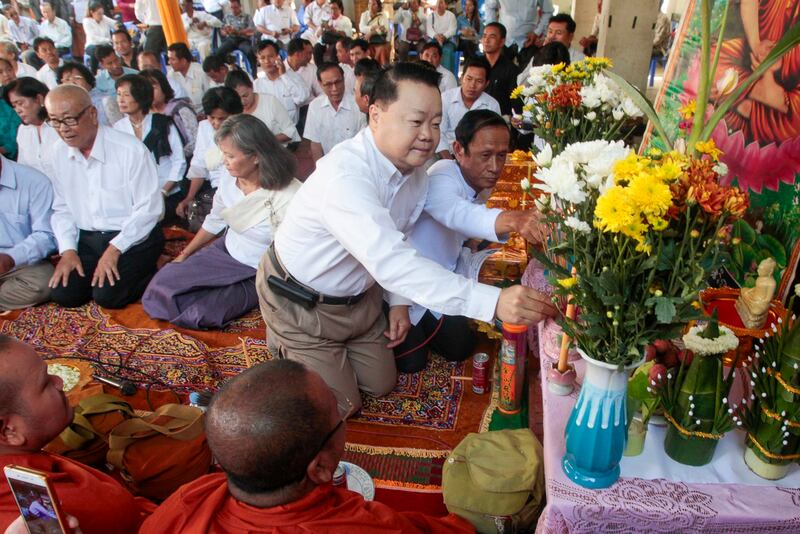The president of Cambodia’s leading opposition party was ordered on Thursday to pay the government US$1.5 million in a defamation case that stemmed from critical comments about Prime Minister Hun Manet.
Teav Vannol's comments to Nikkei Asia during a trip to Japan in February included the statement: "There is no democracy in Cambodia."
He added that Prime Minister Hun Manet’s administration was “getting worse in terms of democracy.” Government lawyers filed a lawsuit in April.
The interview with Nikkei Asia took place about six months after Hun Manet was named to the government’s top post following the July 2023 parliamentary election that saw the ruling Cambodian People’s Party win 120 out of 125 seats.
The election was held without any candidates from Teav Vannol’s Candlelight Party. The government’s National Election Committee ruled the party ineligible in May 2023, citing inadequate paperwork.
Hun Manet is the son of former prime minister Hun Sen, who was often criticized for his government’s human rights abuses – including violations of freedom of speech and the shuttering of independent media outlets.
Teav Vannol wasn’t in the courtroom on Thursday for Phnom Penh Municipal Court Judge Hok Pov’s ruling. His attorney, Choung Chougny, said Teav Vannol has been living and working outside of Cambodia and may appeal the decision.
Political debate discouraged
Officials from the United States Embassy, the European Union, civil society organizations and human rights groups were present in the courtroom for the verdict.
Teav Vannol’s comments to the newspaper were merely expressions of his true opinion and shouldn’t have been the subject of a defamation lawsuit, Choung Chougny told reporters afterward. Critical comments among politicians are normally protected free speech, he said.

Freedom of expression is guaranteed by Cambodia’s Constitution, but Thursday’s judgment could cause people to be more wary of expressing their opinion, said Kim Piseth, a senior official with human rights group Adhoc.
Ideally, political matters should be resolved through political debate, he said.
“It is very important that politicians discuss things to a certain extent in a specific manner, and open up opportunities for citizens, as well as people in society, to discuss their interests,” he said.
A spokesman for the Cambodian government couldn’t immediately be reached for comment about the court’s decision.
On July 31, the court ordered the seizure of three plots of land belonging to Teav Vannol. The land -- two plots in Kampong Cham province and one plot in Kandal province -- could be sold to help pay the judgment, the order said.
Previous cases
The lawsuit was just the latest in a long line of defamation cases brought by powerful officials in Cambodia.
In February, Hun Sen and the Cambodian People's Party, or CPP, sued Adhoc's spokesperson, Soeng Senkaruna, after he told a media outlet that the party has used its influence with the courts to put pressure on political opponents.
CPP lawyers have demanded 2 billion riel (US$500,000) in damages.
Last year, the Supreme Court upheld a US$1 million defamation judgment against Son Chhay, the Candlelight Party's vice president.
A lower court in 2022 ordered Son Chhay to pay the amount to the CPP and the National Election Committee following comments he made about local commune elections, which he said were marred by irregularities.
Additionally, another Candlelight Party vice president, Thach Setha, was found guilty of incitement in October 2023 and – in a separate verdict in September 2023 – of writing false checks.
He was arrested in the incitement case for comments he made about the CPP’s historical ties to Vietnam and the Cambodia-Vietnam Friendship Monument, which was built in Phnom Penh in 1979.
His bad check conviction has been criticized as politically motivated by human rights groups and party officials.
Translated by Yun Samean. Edited by Matt Reed.
This story has been updated with details from a court order to seize the defendant's land.
